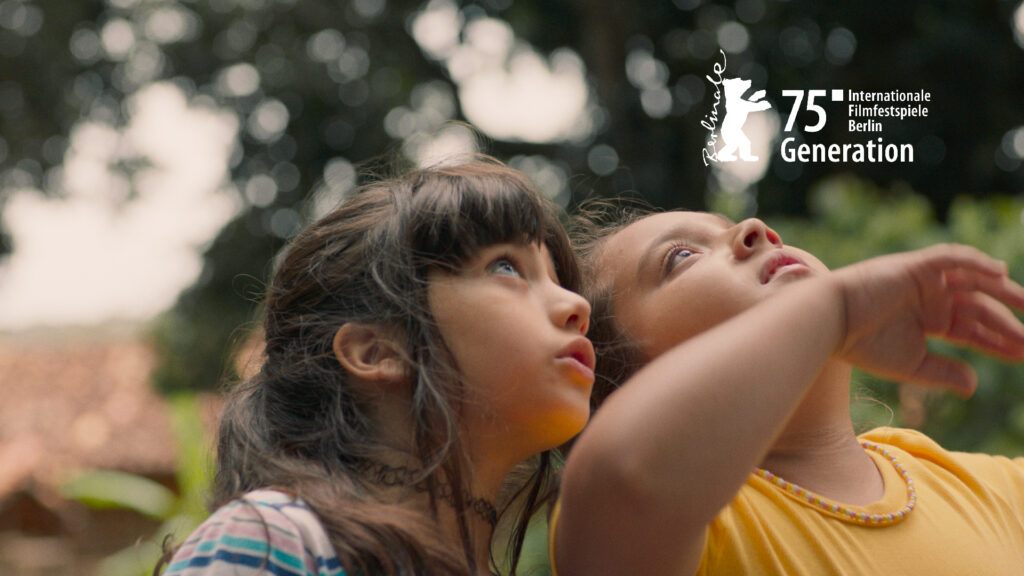THE NATURE OF INVISIBLE THINGS
A NATUREZA DAS COISAS INVISÍVEIS
WORLD PREMIERE, BERLINALE’s GENERATION Kplus
written and directed by RAFAELA CAMELO
Brazil, Chile, 2025, 90′, col.
Drama, Coming of Age, LGBTQIA+
Gloria, a 10-year-old girl, is spending her vacation in the hospital with her mother, a working-hard nurse. While exploring the facility, Gloria meets Sofia, a girl convinced that her great-grandmother’s worsening health is a result of her hospital admission. Bonding over their shared desire to leave, the two girls find solace in each other’s company. As departure becomes inevitable, the girls and their mothers head to a countryside retreat to spend the final days of an unforgettable summer.
Editing Marina Kosa, Rafaela Camelo Photography Francisca Sáez Agurto Production Design Sarah Noda Music Alekos Vuskovic Sound Lucas Coelho Cast Laura Brandão, Serena, Larissa Mauro, Camila Márdila, Aline Marta Maia Producer Daniela Marinho Co-Producers Rebeca Gutiérrez Campos, Otavio Chamorro, Rafaela Camelo, Executive Producers Heloísa Schons, Juliana Melo, Isabella Jacob Pinto, Daniela Marinho, Fred Burle Production Moveo Filmes International Sales The Open Reel International Press MadAvenue PR National Press Sinny Assessoria e Comunicação
THE DIRECTOR
Rafaela Camelo is a Brazilian director and screenwriter. In 2019 she directed the short film Desires of the Flesh, premiered at Sundance and winner of the Best Film Award at the Biarritz Amérique Latine and New Directors/New Films festivals. Co-directed in 2023 with Emanuel Lavor, The Beads, premiered at the Berlinale, won the Golden Horsemen at 36th Film Fest Dresden. She is a member of the Talent Network of Projeto Paradiso. In 2021, she was selected for the Latin American program of Berlinale Talents. In 2023, she was selected by Variety as one of 10 Brazilian next gen talents.The Nature of Invisible Things is her first feature.
“The story takes place in the Brazilian Midwest, the region where I was born and which influenced me with its very specific, mystic aura. Despite being a film about death, it is not my goal to give so much weight to a topic that is already considered taboo. I truly believe it takes a certain amount of humour to achieve depth. To evoke a bittersweet atmosphere, I chose the point of view of two 10-year-old girls. One is a medical miracle for having received a transplanted organ and has the sensitivity to perceive spirits. The other is a trans girl who experienced a symbolic death based on her old identity and is experiencing the process of saying goodbye to her fatally ill great-grandmother.” Rafaela Camelo


